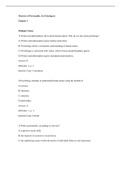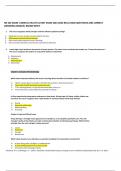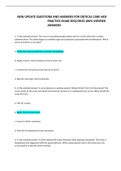Exam (elaborations)
Theories of Personality Understanding Persons, Cloninger - Exam Preparation Test Bank (Downloadable Doc)
- Institution
- Harvard College
Description: Test Bank for Theories of Personality Understanding Persons, Cloninger, 5e prepares you efficiently for your upcoming exams. It contains practice test questions tailored for your textbook. Theories of Personality Understanding Persons, Cloninger, 5e Test bank allow you to access qui...
[Show more]












